terrorism
Filter by...
-
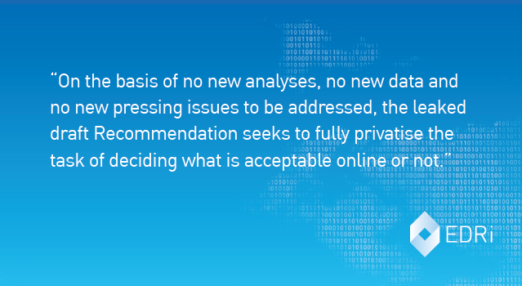
LEAK: European Commission’s reckless draft Recommendation on “illegal” content
In September 2017, the European Commission adopted its widely criticised “Communication on Illegal Online Content.” Now, already, due to political pressure and internal competition between various European Commission services, a new Commission proposal for a Recommendation on the same subject is close to being shared with the Council for unanimous support, albeit not being legally […]
Read more
-

European Parliament – fighting terrorism with closed-door secrecy
The European Parliament’s Special Committee on Terrorism (TERR) was established on 6 July 2017, for a renewable twelve-month mandate. The Committee was created with the ambitious aim of addressing ostensible practical and legislative deficiencies in the fight against terrorism across the European Union (EU) and with international actors.
Read more
-
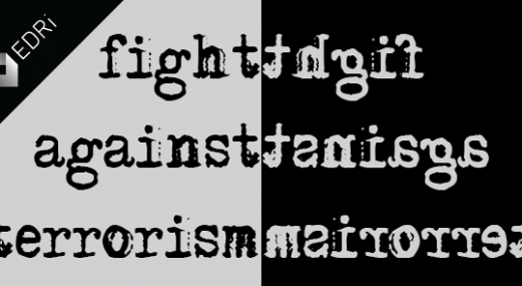
Can we ensure EU terrorism policies respect human rights?
During 2017, the European Union (EU) increased its arsenal its “fight against terrorism”, namely by adopting a Directive on combating terrorism and by setting up a Special Committee in the European Parliament. In partnership with the Open Society European Policy Institute (OSEPI), the European Network Against Racism (ENAR), Amnesty International, Human Rights Watch and the […]
Read more
-

Controversial testing of facial recognition software in Germany
At the end of August 2017, German police has been testing a facial recognition software at Südkreuz train station in Berlin. The system was tested on 300 volunteers. The goal was to evaluate the accuracy of the software in recognising and distinguishing them from the crowd – a feature that the police hopes to ultimately […]
Read more
-
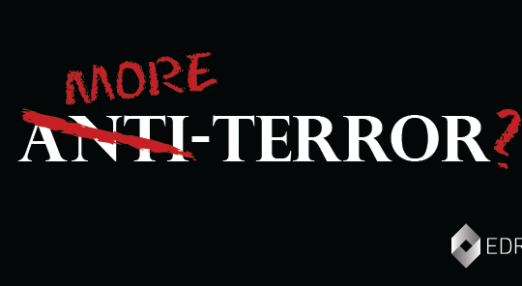
ENDitorial: Draconian anti-terrorism measures instil terror
We are becoming more and more scared. Images of terror attacks influence our daily decisions. A friend of mine gets nervous when he has to travel past an airport by train, and another friend surprised me by telling me that this year he stayed home during gay pride. Several people have told me of times […]
Read more
-

#ValuesGap: Commercial interests win where all others fail
A European Parliament Committee decided that filtering all uploads to the internet as a method to prevent terrorism and “the most harmful content” is unacceptable. However, the same Committee decided that the same policy is acceptable for restricting use, including legal use, of copyrighted material.
Read more
-
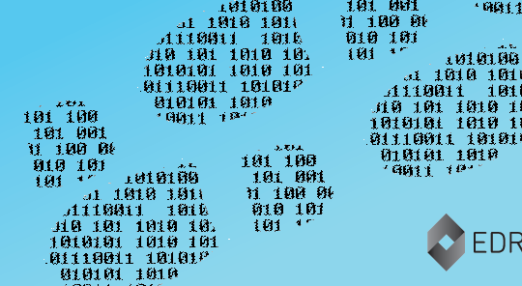
Access to e-evidence: Inevitable sacrifice of our right to privacy?
What do you do when human rights “get in the way” of tackling crime and terrorism? You smash those pillars of your democratic values – the same ones you are supposedly protecting. Give up your right to privacy, it is a fair price to pay for the guarantee of your security! This is the mantra […]
Read more
-

Internet clampdown – convenient distraction from political turmoil?
There was unforeseen result in the United Kingdom general election. The Conservative Party was expected to increase their majority in government. However, it failed to achieve a majority and was forced to seek an alliance with the controversial Democratic Unionist Party (DUP) in order to form a government.
Read more
-

UK government pushes for companies to weaken encryption
The terrorist attack in Manchester on 22 May has led to a relaunch of the encryption debate in the UK. In December 2016, the UK parliament passed the Investigatory Powers Act. This wide-ranging surveillance law gives government ministers the power to issue Technical Capability Notices (TCNs), which can force companies to modify their products.These powers could […]
Read more
-
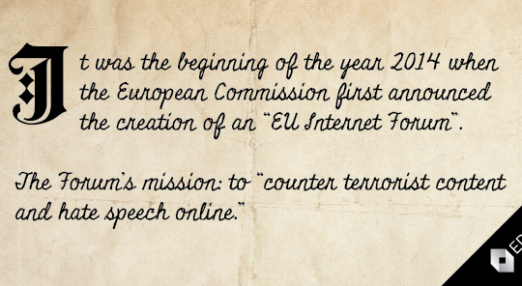
The tale of the fight for transparency in the EU Internet Forum
Chapter One: The dark knights at a secret meeting It was the beginning of the year 2014 when the European Commission first announced the creation of an “EU Internet Forum”. But it would take almost two years and several meetings before its official launch on 3 December 2015. The Forum’s mission: to “counter terrorist content […]
Read more
-

New legal framework for predictive policing in Denmark
After the terrorist attack in Copenhagen in February 2015, the Danish government presented an action plan to strengthen the data analysis capacity of the police and the Danish Security and Intelligence Service (PET). The action plan, called “A Strong Guard against Terror”, specifically mentions monitoring of social media posts in order to discover possible terrorist […]
Read more
-
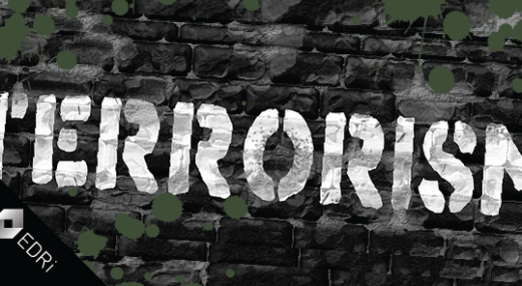
Recklessly unclear Terrorism Directive creates significant risks for citizens’ security
On 16 February 2017, the European Parliament voted in favour of the EU Directive on combating terrorism. Weak, unclear, ambiguous wording in the Directive presents dangers for the rule of law, the right to privacy and freedom of opinion and expression of people in the European Union. Adopting a Directive that is unclear and wide […]
Read more
